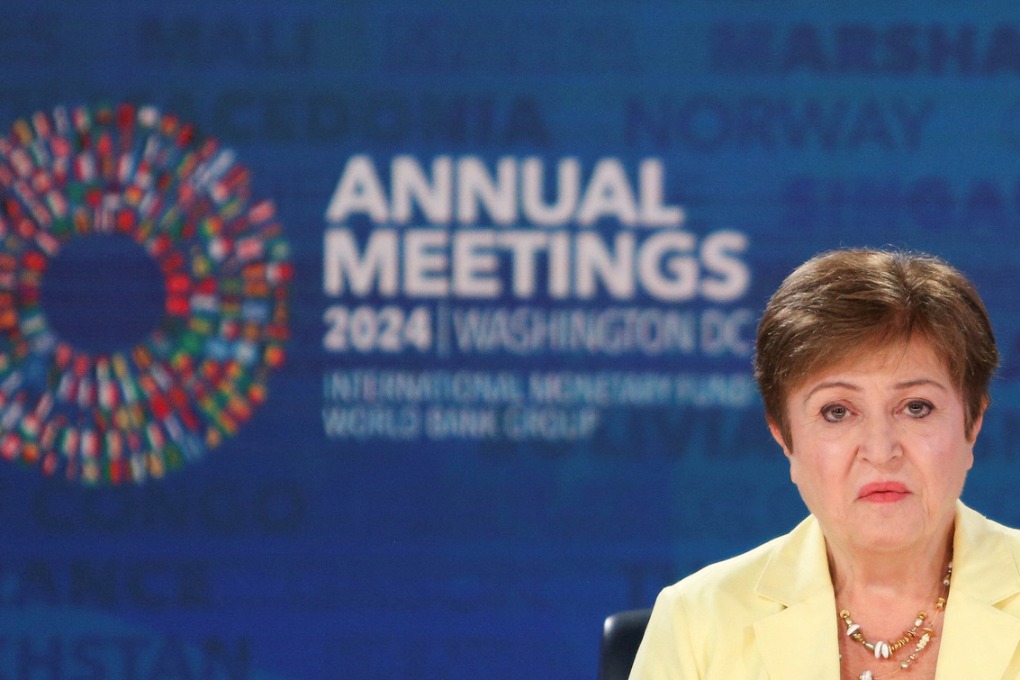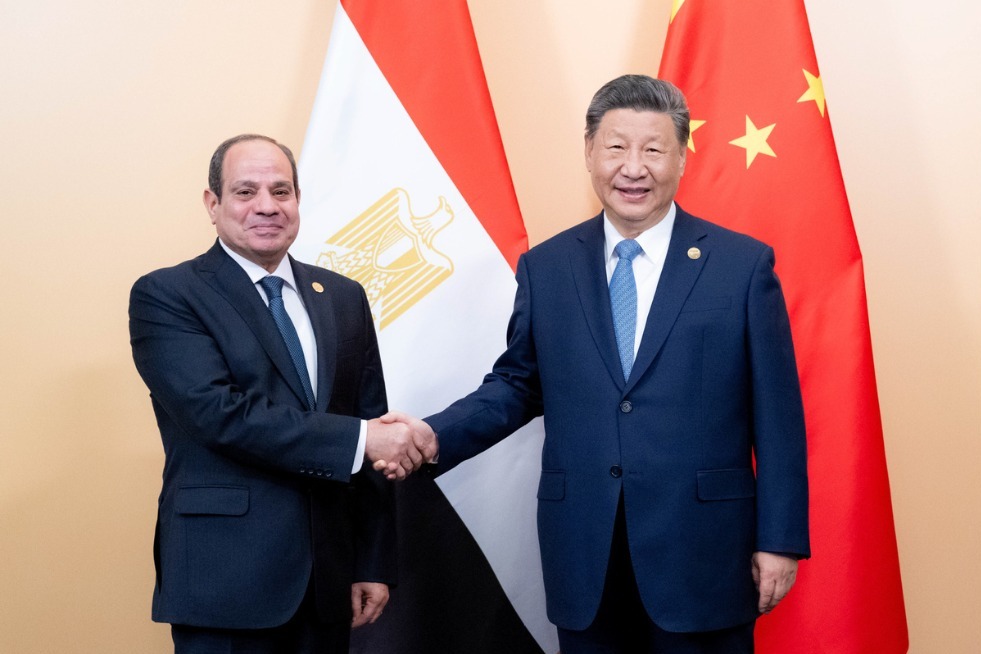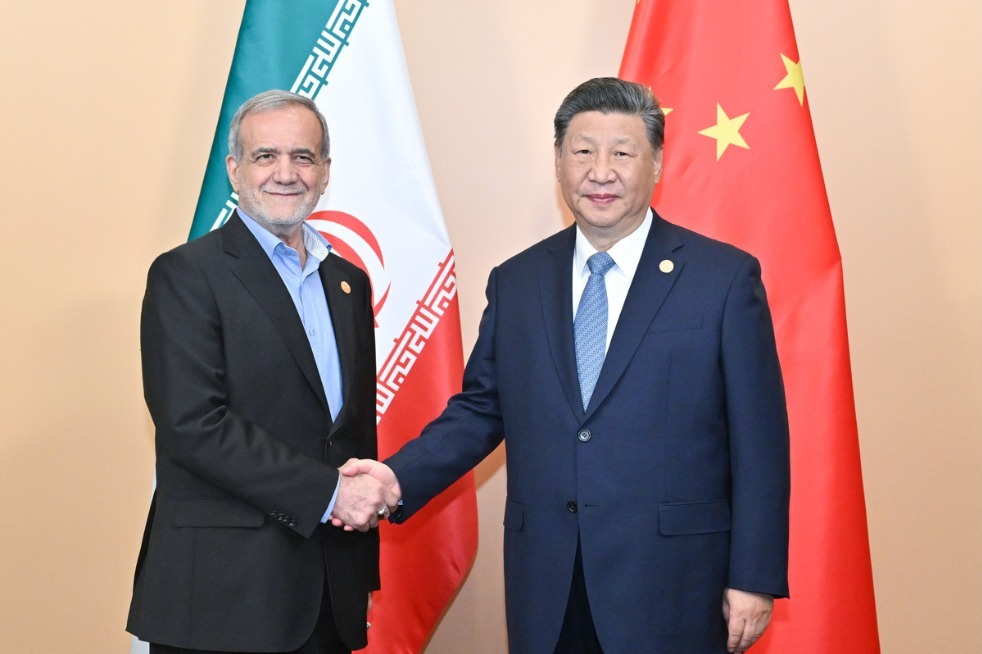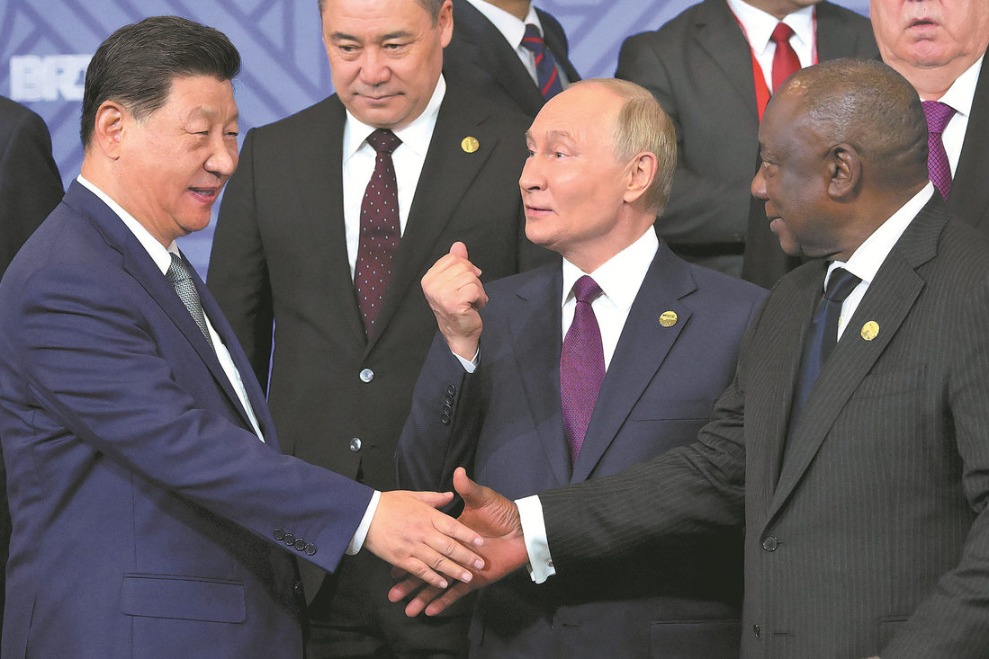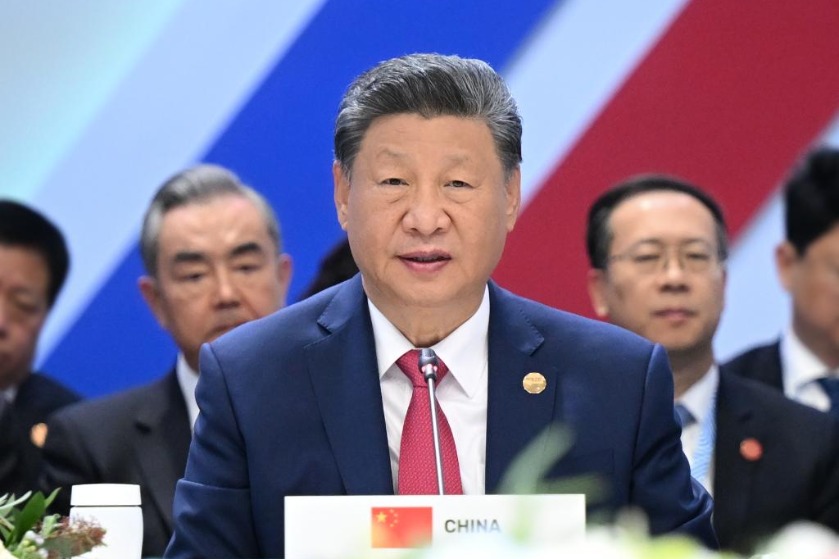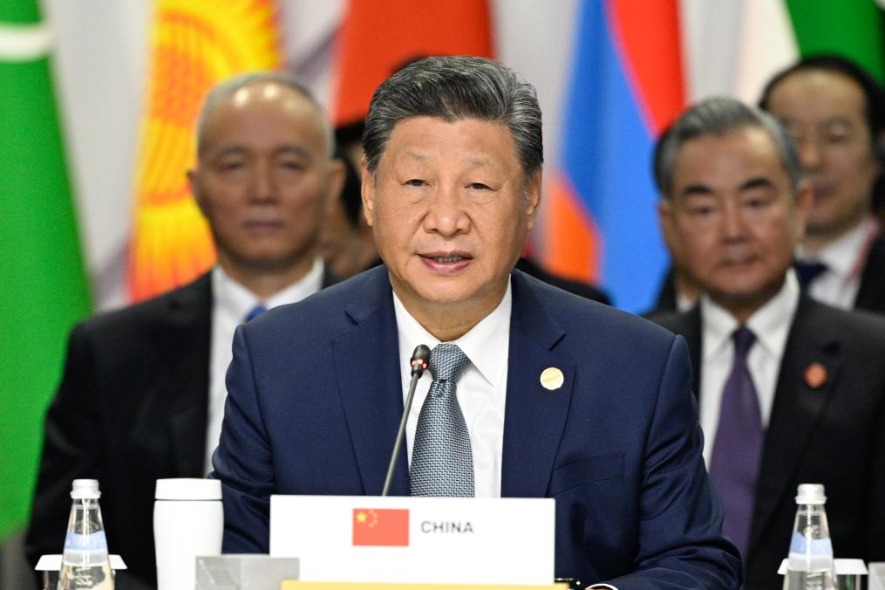In touch with the world, thanks to a little box





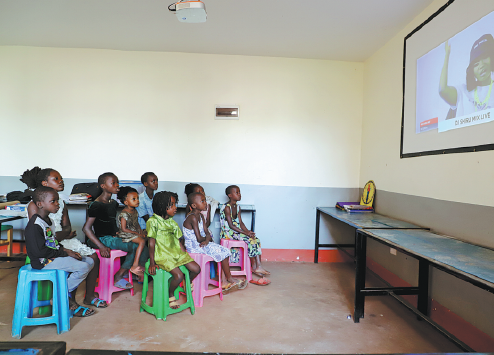
Satellite television, introduced as part of the Belt and Road Initiative, has transformed the lives of many Africans
Editor's Note: People-to-people exchanges are deepening the connections between countries participating in the Belt and Road Initiative. This column celebrates the efforts of those working toward a shared future.
For three years George Waweru could not watch television even though he owned a TV set because he could not afford a decoder, analog transmissions having been switched off in Kenya in February 2015.
So when Waweru, a villager in Kiambu county in the country's south, was provided with a free digital set-top box, a dish and accessories in 2018 by a Chinese company, his life changed.
"I can watch many different programs now, nationally and internationally, and it has enabled me to get informed and entertained like city dwellers," says Waweru, 48, a father of three.
Paying the equivalent of $4.50 a month, Waweru can watch dozens of programs including international news and Chinese programs such as kung fu movies, and his children watch cartoon channels.
Just a few hundred meters away, Michael Ng'ang'a, 47, and his family have also been able to access satellite TV since 2018 after being given equipment including a digital set-top box. It not only keeps him informed of what is happening outside the small county near Nairobi but also keeps his family entertained, he says.
Work can sometimes be hard to find, particularly since the COVID-19 pandemic broke out, and watching news and soccer on TV has helped relieve the stress, he says.
Like Waweru and Ng'ang'a, many other people living in remote areas in Kenya and other African countries have seen their lives change after gaining access to the outside world via satellite TV, due to the implementation of a project to connect 10,000 African villages in 25 sub-Saharan countries to satellite TV.
The project, part of the Belt and Road Initiative, which aims to improve connectivity through increased trade, economic integration, political trust and cultural exchanges, among other things, has put millions of people in touch with the outside world, says William Masy, the public relations director of StarTimes Group, a Chinese digital TV operator that is carrying out the project.
"The project has enabled locals in remote areas in Africa to have long-term and stable access to information from all over the world, narrowing the digital information gap between urban and rural areas in Africa."
By the end of August the project, which China promised during the Forum on China-Africa Cooperation in Johannesburg, South Africa, in 2015, had been completed in 8,612 villages in 20 countries, including Burundi, Ghana, Guinea, Kenya, Madagascar, Malawi, Mozambique, Rwanda, Senegal, Uganda and Zambia, he says. More than 6.5 million villagers have been connected with satellite TV.
The Belt and Road Initiative, launched almost 10 years ago, has turned from a grand concept to reality, bearing rich fruit. By now, 140 countries and more than 30 international organizations have been involved in the initiative, which has become a major international platform of collaboration, Xinhua reported.
From the BRI's inception, trade volume between China and countries involved in it exceeded $9.2 trillion by 2020, and direct investment by Chinese companies in these countries reached nearly $140 billion, says China's Central Committee for Financial and Economic Affairs on Nov 12.












